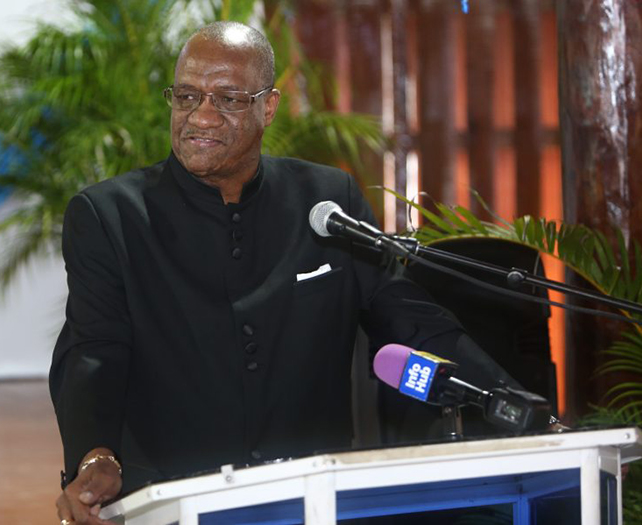In the event that the National Assembly is reconvened to consider extending the deadline for the holding of general elections, those members who have dual citizenship will have to be replaced in light of the recent ruling by Chief Justice (ag) Roxane George-Wiltshire, according to attorneys who were involved in the litigation.
On Thursday, Chief Justice George-Wiltshire held that former government Member of Parliament (MP) Charrandass Persaud was not “not qualified” for election to the National Assembly by virtue of his own acts in acknowledging allegiance and adherence to a foreign power to the sovereign state of Canada, in contravention of Article 155 (1) (a).
She was at the time ruling on an application by Berbice resident Compton Reid challenging the validity of Persaud’s eligibility to be in the National Assembly, given that he is a citizen of Canada, as well as the legality of his critical vote that led to the passage of the December 21st no-confidence motion against the government.
Notwithstanding his ineligibility to be a member, the judge upheld the validity of his vote and the motion.
Speaking to reporters after the ruling at the High Court, Senior Counsel Neil Boston and attorneys Anil Nandlall and Sanjeev Datadin all agreed that those MPs who occupy seats in the House will have to vacate them.
According to Article 155 (1) (a) of the constitution, “No person shall be qualified for election as a member of the National Assem-bly who is, by virtue of his or her own act, under any acknowledgement of allegiance, obedience or adherence to a foreign power or state.”
It has been confirmed that government MPs Dr. Rupert Roopnaraine, Minister of State Joseph Harmon, Foreign Minister Carl Greenidge and Busi-ness Minister Dominic Gaskin along with PPP/C members Gail Teixeira and Adrian Anamayah have dual citizenship.
Asked about the implications of the ruling on the other dual citizens in Parliament, Boston said that it is a matter for the politicians. “It would appear as though they may have to vacate their seat. We can’t speak for them and what they may do because, as you know, politicians speak with forked tongues…politicians find some excuse to go around the rules. Legally, they should not be there but the thing is it you can have a foreign passport but the section says by your own conduct you were acknowledging allegiance and obedience to a foreign power. They may come and say they haven’t done so …we do not know, so that’s a speculation. It’s the politicians who have to deal with that when they get to parliament,” he said.
Boston indicated that he was dissatisfied with the judge’s ruling and would be filing an appeal as early as Monday and will also be asking the Appeal Court for a conservatory order.
Nandlall, meanwhile, said that the leaders of the respective lists will now have to ensure that those sitting in the National Assembly are eligible to do so. “It has a more immediate effect. Let us assume that we have to extend the life of parliament for whatever reason because that is an eventuality provided for by the constitution, because of this ruling, it means that those persons who are currently in that peculiar circumstance should not be sitting in the parliament and that has nothing to do with elections,” he said.
“Of course, in relation to elections, leaders of the lists now will have to ensure that members… comply with the constitutional provision as it relates to dual citizenship,” Nandlall, a former Attor-ney General, added.
Datadin, also highlighted the fact that only eligible persons can turn up to the National Assembly if that becomes necessary in the coming weeks.
“I guess that what it [the ruling] will apply to is those who are in parliament now and that whoever are dual citizens…There might be the cause that parliament may come back…and I am not sure that those who are dual citizens now can come back to parliament when that extension vote would be taken because they wouldn’t validly be there any longer,” Datadin said.
Told there was a view that the ruling was exclusive to Persaud and not the other dual citizens in parliament, he expressed disagreement. “That couldn’t be because at the time the case was filed Mr. Charrandass was no longer a parliamentarian. The Court and the Speaker were at pains to point out that it would be for the future. It would not relate to anything concerning the no-confidence motion,” he said.
He added that the Chief Justice pointed out that she had no jurisdiction to deal with the matter because Reid used the wrong process and was outside of the time permitted for such a challenge. He noted that even if that were not the case, Persaud’s vote would have been safeguarded by Article 165(2).






